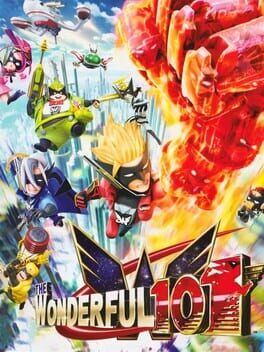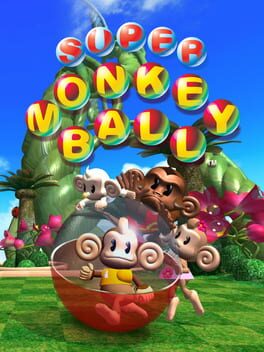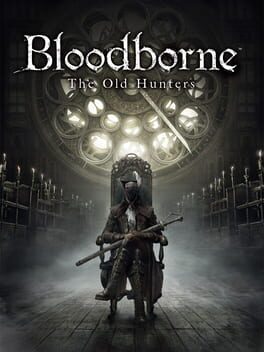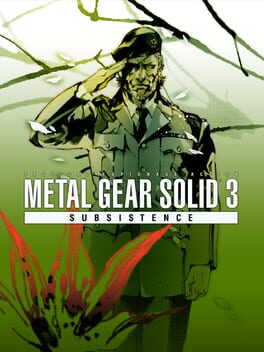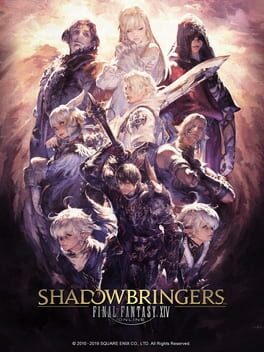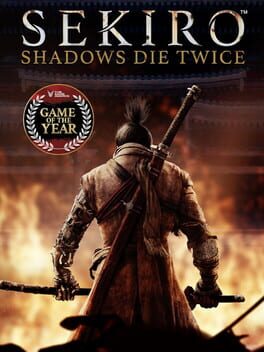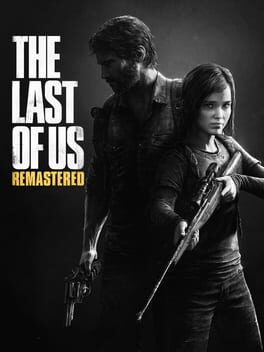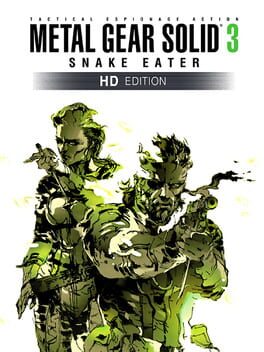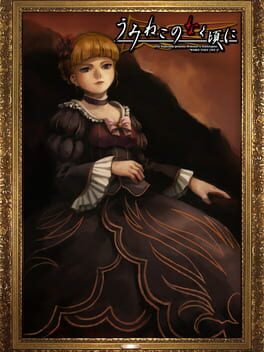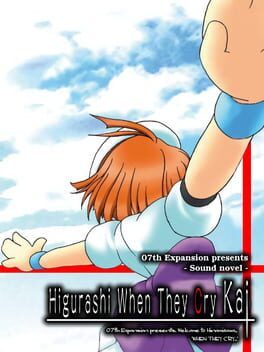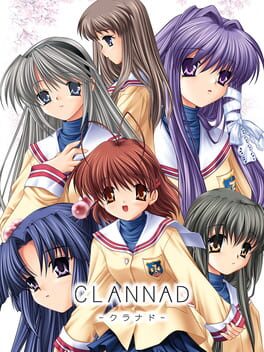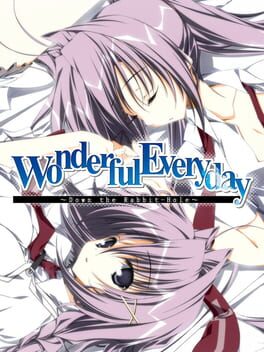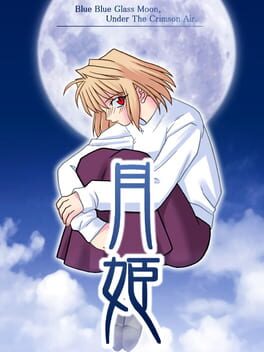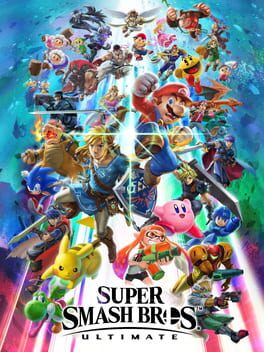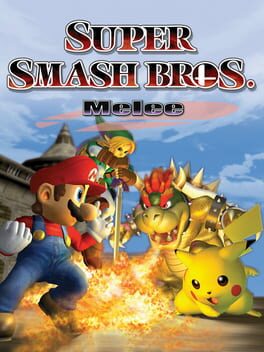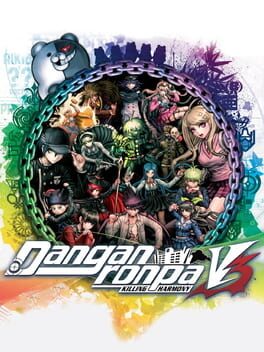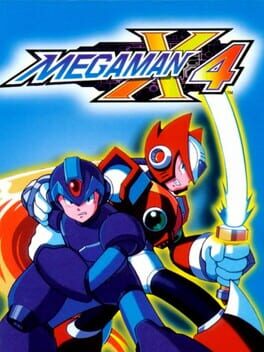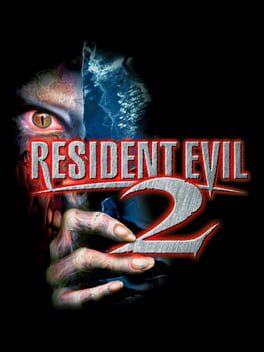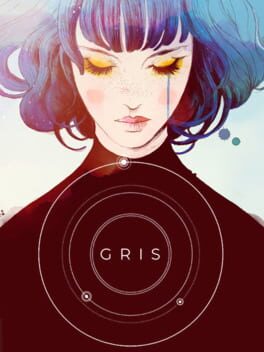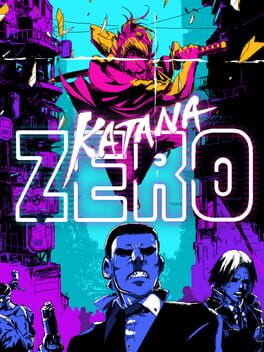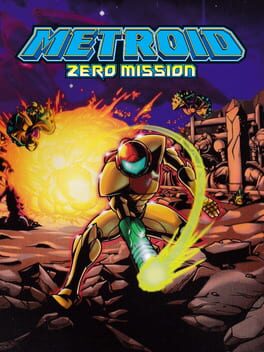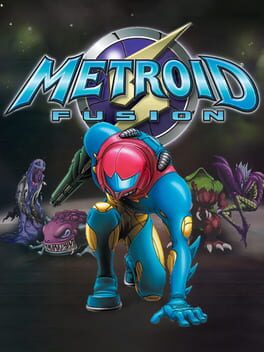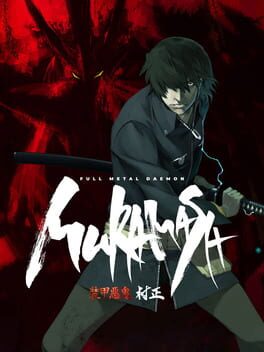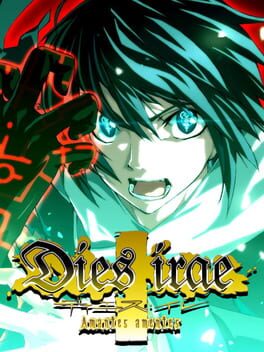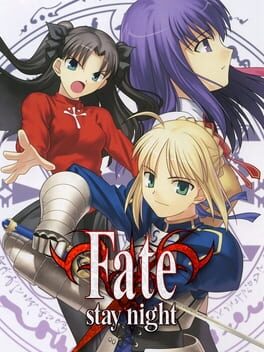MilesRS
98 reviews liked by MilesRS
Persona 3 Reload
2024
The phrase “x story helped me out during a rough time” is used commonly to elaborate on how much a piece of media has helped someone out, but I can’t say that about Persona 3, primarily because it’s a story that has taken root inside me deeply and stayed with me throughout the years ever since 2021 when I first played it. It’s not like it helped me during a single rough time, it was more like an affirmative embrace and an acknowledgement of my struggles throughout all of these years collectively instead of just one period of time. Persona 3, much like Good Will Hunting, Evangelion, and Pandora Hearts, is a game that I like to revisit and reflect upon every time I feel like I’m in a rut and can’t figure out who I am and what am I supposed to do in this world. It’s something I’ve closely attached to who I am because of how much it shaped my mindsets towards life, “The meaning of our lives is something that we make but don’t see”, and, “You don’t need to save the world to find meaning in life” are quotes I internalised, reminded myself of anytime I felt myself falling down an existential crisis, and the long term effects it had on me throughout the years is not something I take for granted. In a way, Persona 3 is a symbol of my struggles during my adolescence, and so, it is that revisiting it through Reload that I felt like I was looking back on parts of myself from back then and getting in-touch with them again. It felt like a reflection of my past, of all the struggles I pushed through to make it this far to where I am today, and by the end of it, I realised that much of my own growth throughout the years was because of stories like Persona 3, growth due to me burning my dread and venturing in life while living in the moment.
When you’re faced with a crisis that you have no idea how will it end, or how you will resolve it, you have two choices, whether to believe that you’ll fail and fall into a hole of cynicism or to believe in your happiness and work towards that ideal in the moment by focusing on yourself and doing what you can until eventually, everything falls into place. This sentiment seemed too unreal to me because of how clouded my vision was with all of the negativity that I surrounded myself with back in 2020 because whenever I tried to resolve my issues, I half assed it and it backfired, whether it be my existential crisis due to the societal pressure I experienced that made me feel like I had to have a larger than life success story to be worth anything, my ever growing disdain towards the fleeting nature of bonds, struggles with navigating interpersonal issues due to my self pity and cynicism as a byproduct of my fear of abandonment, and fear of death due to religious doubts I had. All of this was too much for my 17 year old self to bear, but as I said, Persona 3 and its characters all reflected different intimate parts of who I am for a reason.
For a dumb teenager like me who couldn’t believe in himself, drowned in self pity and inferiority towards others, and had trouble seeing what was so special about myself, Junpei Iori represented my struggles with the indifference of the universe crucially. He’s someone who believes his own hype to subconsciously convince himself that he’s a hero destined to save everyone, when in reality that’s merely his coping mechanism with his deep-seated insecurity about his incompetence, and that shows in the dichotomy of his goofiness and feelings of envy and jealousy. It’s only later through meeting Chidori, someone who felt like her life held meaning due to her persona, much like he did, that he realized that he doesn’t need to be this impossible image of a hero that he created within himself and that if he kept on being true to his innermost self, the one who wanted to become a baseball player, he’ll have already become a hero to someone, like he did with Chidori. I said that Junpei’s insecurities and tendency to compare himself to others reflects a part of me in the past, but truth be told, I still have those tendencies lingering in from within me, yet in the same vein, over time I’ve learned to trust in myself, that whatever I do, it’ll result in something special. I learned that it doesn’t matter if there’s someone who’s better, smarter, more insightful than me, because no matter what, they can never be me, and so long as I pursue that self and see to it that its potential is met, everything will fall into place. It’s for that reason that I can look back on Junpei’s arc in P3 fondly and think to myself about how much it helped me internalise that self trust, because there’s nothing more real than pulling a mentally ill goth bad bitch by being funny and quirky.
When I said that P3 reflects different parts of myself from the past, I meant that because it’s not just my teenage years that it reflected but my childhood as well with characters like Ken. I could go into how characters like Mitsuru, Akihiko, Shinjiro, & Fuuka connected with me but I want to go with Ken not just because he’s my favorite among the aforementioned characters (I’m quirky, I know) but because of how he crucially reflected a part of me that no other character has, and it’s how Ken chooses to adapt to his situation to fit in in self deriding ways that I feel seen by. From the start, Ken is pushed into this dog-eat-dog world where only the strong survive, even in SEES, and that sudden change in his environment not only made him lose himself but a person’s most precious value, that being his inner child. Ken was forced to let go of his childish nature, gaslight himself into thinking that such notions would only hold him back, and proceeded to move solely through objective means because of how he was stuck in an adult world where if he doesn’t man up and throw away his childish needs and struggles, he’d be left behind, much like how his mother left him behind and so did everyone else, with their looks that were devoid of nothing but pity, yet even then, in his linked episodes, he couldn’t let go of his inner child and it shows sprinkles of his inner child peeking out due to his enthusiasm. It’s a heartbreaking accurate depiction of how much Ken struggles to connect with others and most importantly himself, because nothing has been the same for him since his Mom died. Many people, when looking at Ken’s character, view Ken’s arc as a revenge arc, and while that’s a valid reading of his character, to me, it felt like it was more so Ken reconnecting with his inner child, realising that he doesn’t need to put up this facade to “survive” and “fit in” with this cruel world, and that he doesn’t need to hold himself back emotionally so much because of others anymore, because while he may have lost his family, he gained another through SEES, and that’s what “living” means. Losing people, meeting new people, bonding with them, and doing simple things like practicing your hobbies, that’s what living really means, and that meant so much to me because back when I was a kid, I never had any friends of my own, could never really connect with them, and that’s because I always hung out with my older brother’s friends, which subsequently made me mature too fast for my good and didn’t allow me to live my childhood to its fullest. I could never connect with people my age, because I was so used to forcibly maturing myself to keep up with my older friends, I always felt like bottling up my emotions and needs in favor of a facade that could get me the closeness and sense of belonging I wanted out of their company since I was too awkward to make any friends of my own, yet on the inside I was too young and emotional to get along with my older friends, creating this unstable interpersonal problem I had that plagued my childhood. It’s funny, how I’m a grown person now, yet seeing Ken be plagued with this same issue I had and recovering from it through mundane means, almost had me tearing up because it reminded me of how much I hardened myself and designed a strong man to protect the hurting child inside me.
Earlier, I described Persona 3 as a meditative experience that gives me space for my feelings whenever I need a haven to express myself within, or feel seen within, and so, there are parts of it that are timeless to me, parts of it that help me see myself in a better light and enable me to look at myself more positively, one such part is Yukari’s character and how much of an embrace it feels to me. Truthfully speaking, my aim with my media experiences is to either escape the real world, or for edutainment purposes, but it is so rare for me to engage myself with a story that can help me discover positive, strong traits within my character that makes me love myself. It’s hard for a story to do that, since what I look for in fictional characters are parts of me that I and others around me struggle to accept, more often than not are negative parts, but that’s why Yukari means the world to me, since not only does her character give me a safe space to feel seen and accepted for my contradictory feelings of love and hate towards intimacy, but she also embodies a trait of mine that helps me accept it, that being kindness and empathy. Yukari’s premise is that she struggles with the internal conflict known as the hedgehog dilemma, where she craves intimacy but disdains contact with others, because she wants to be loved, but doesn't think she's worth loving because of the self pity, sense of weakness/inferiority, & self hatred she internalised as a byproduct of being "abandoned" by both of her parents, at least emotionally. I say emotionally because her dad died so he didn’t abandon her technically, and her mother simply clung to other men for emotional support, so she didn’t consciously abandon Yukari, but at least on an emotional level, Yukari felt like she had the deepest craving she had was taken away from her, forever a wish beyond her reach, and that affected how she perceived herself and others and based her moral compass around her disdain for her Mother who abandoned her and what she represents. Following that, Yukari would disassociate with anything that resembled the escapist coping mechanisms her Mother did through either self-denial or self-isolation from others. It’s why she despises being helped out, because not only does she blame and hate herself for what happened to her parents but because it resembles her Mother’s helpless state of feeling like she needs to be saved, it’s why she was mad when Makoto helped her out during her s. Link, it’s why she tries to present herself as this being who towers above the concept of weakness to feel a sense of leverage and derive self-worth from that, but at the same time, she’s a highly emotional person who wears their heart on their sleeve, and so bits and pieces of that need for emotional support and insecurities about her self image come out. An example of this would be her jealousy and fixation over Mitsuru, she’s so fixated on Mitsuru because deep down, she wants to be like her, someone who’s unfazed, looks powerful and is the exact opposite of her Mother. A toxic sense of admiration, you could call it, since she never recognizes this jealousy, how wrong it is since even Mitsuru’s flawless demeanor was fake and a byproduct of societal expectations, and how much it contradicts Yukari’s conscious desire to present herself powerfully, and whenever she recognizes that, it’s in self-loathing, like how she did in Yakushima, because of how much she gaslights herself into thinking that she’s strong and doesn’t need help, even if it means ignoring herself and wrongly seeing others. Despite those insecurities getting in the way of how she interacts with others, she's a very kind person who has all the love to give to others, yet when it comes to loving herself, that ''love'' she has for others is devoid of any love for herself. Time and time again, in various instances Yukari shows how much empathy and kindness she has for others, even from the start of the game, like how she was the first SEES member who bothered to reach out to Makoto and connect with him instead of spying on him, how she was the first to defend Makoto when Junpei lashed out at him, how she made insensitive jokes about Junpei but then apologized to him and considered his feelings, or with how she helped other SEES members navigate their problems like Fuuka who struggled with people pleasing habits during her final s. link and Mitsuru who struggled with self-acceptance and existential dread. Additionally, if you spend enough time with her during the night events, there's a moment where she talks about how inspiring the main female character is, how she wants to be just like her, someone who's there for everyone around her and is capable, and that puts into perspective how kind Yukari is and how much she empathizes with others. Yet, she has moments where she’s a tease and makes fun of others, sometimes in a tone-deaf way, and why is that? The majority would chalk it up to her being a quirky mean white girl, and while I get it and understand how appealing that is since I’d love for a pretty white girl like her to call me racial slurs and deride me my right to live, I think that Yukari’s need to prove her toxic self image right to justify her self hate and rejection of help to disassociate from her Mom is what causes her to be such a tease and to be so slanderous, because while she's quirky and mean in her own right, it's also valid to infer that about her character. It doesn't help that being bullied due to her father's failure influenced her perception of social interaction more aggressively and might've added to that if anything. In a sense, she has the most amount of kindness out of anyone, but the dichotomy she has where she pushes everyone away while craving their love and attention, is what clouds that trait of hers and makes it harder for her to express that, and it's why whenever she gets praised for her kindness, she denies it. She's a perfect example of how someone's personality can be so dynamic, where she's a mean teaser on the outside, but would be the quickest to be there for someone else, and that part of her helps me embrace the idea that I'm a kind person, or at least, try to be because I'm similar to that aspect of her and it feels very validating. It's especially relatable because there are moments where I went out of line and lost friendships due to that, due to unhealthy tendencies and mindsets I had, and that made me reject my kindness in favor of self-loathing, yet through Yukari, I was able to see that part of me, admit to it, and love myself more authentically because of it.
By now you understand how much Persona 3 means to me, how much of a solace inducing experience it is for me, and how much it helps me to love, to feel loved, to express my earnest desires, and to be there for everyone around me, but in contrast, oddly enough, when I was playing through Reload, a certain part of it re-stimulated my fear of abandonment, my disdain for the fleeting nature of relationships due to past experiences, and my desire for everything to stay the same way, thinking about how worthless something is if it’s destined to never last, that certain part being the front and center of the game, Aegis. A few years ago, during the pandemic, I’d say I was at my worst mentally, and it’s not because of the experiences I went through by that point, but it was more so because of how I dealt with those experiences by willingly surrounding myself with negativity, choosing to be miserable instead of fighting, and preferring victimhood over the pursuit of happiness. It led to loads of perceptual issues I had, and that only piled up more on the issues I already struggled with at the time. You see, I grew up in an environment that shunned sensitivity and emotions and saw them as a sign of weakness, and so, a feminine guy like me who was highly emotional and sensitive, was essentially born and raised in the wrong environment because of how much that aspect of it contradicted how I was at my innermost core. In an attempt to fit in, I discarded myself, drowned myself in an endless hell of facades, and over time, forgot who I even was, becoming something of a colorless broken puppet unable to discern my emotions and convey them, forever emotionally stunted and ignorant of how it feels to “live” because all I did was exist. For that reason I’ve had my complications with loneliness and love, feeling like I couldn’t feel it or even deserved it. So, it is that through Aegis I was able to see a picture of my past self, a grotesque portrait of how I was 4 years ago. It was as eerie as it was comfortable, seeing a character frustratingly and confusingly try to navigate their place in the world and getting shredded by it. It felt validating, because Aegis had the same misconception that I did, and it was that I thought I had to do something larger than life itself to justify my existence when that wasn’t the case. It was very comforting for me to see a character that represents how I was a few years ago, that’s how it was at first anyway. It later dawned on me that after Aegis decided to live, she started struggling with something that I struggle with nowadays, and it’s maintaining relationships, or rather, thinking that they’re worth maintaining anyway since they all end. I’ve always had this thought that yeah, sure, all bonds end, that this is an absolute, but it always pained me whenever I met someone, because I knew deep down, that at some point they’re going to leave me behind and we’ll part ways. Even if we reconnect, it might not even be the same as before and that made me oftentimes crave a reality where time could be halted. But upon revisiting Aegis’ social link, there’s a piece of dialogue that reminded me why I cherish the people I cherish and why I’ll never stop loving the people I’m with.
“Life is both short and finite. That’s what makes it so invaluable, and why one feels that it must be cherished… When you think about it, it’s a miracle that two given people are able to ever meet in this chaotic flow of time and space.”
It’s a simple line, something that’s hard to miss, but that's the case with most ideas in life and is what makes it connect with me because of how Makoto’s dynamic with Aegis resonates with that sentiment and embodies it with the stark contrast of how they live. Their differences made them feel complete because, on the two opposite spectrums, they struggled to understand life and the worth of the process that goes within it that inevitably leads to death, yet through something simple, like knowing and understanding each others' emptiness, they felt the elusive taste of connection and yearned for more from it. Makoto is a human who tries to be a machine, while Aegis is a machine who tries to be human, yet despite their differences, they connected because they both yearn for the same thing, to stand with one another atop Gekoukan’s rooftop and gaze at the city that gave them a taste of that elusive connection. The shortage of something is what makes you fear losing it. Yet, in the same vein, it makes you want to appreciate it and make use of it to the fullest so that when it ends, you can look back on it with no regrets and cherish your memories of it because it’s the memories that make our experiences with one another flow through all eternity. And so, even if I fear losing the ones I love, even if I lived a life of an emotionally stunted puppet, even if I lived in existential dread, even if I thought at times that I didn’t deserve to be liked, or that I was of less worth than others, none of that matters, because regardless of what happens, I’m human, I have feelings worth conveying, I will always have people I love, and I have something to live for, it may not be monumental, but the small ripples caused by the day to day things I do will surely produce a result worth living for in the long run because no two days are the same. It’s funny, I talked about my time during the pandemic as the worst time in my life, yet when I look back on it, I can’t look at those days as an unhappy time. To me, they’re a sign that I’m alive, a backdrop for me to push forward from, a pat on the back telling me how much I’ve changed, and a signal to dash forward and follow my heart, because I now know that rejecting it is the most painful of all. Maybe that’s how I feel about them because over time, I’ve slowly subconsciously implemented the feelings and lessons that Persona 3 made me feel and taught me into my day-to-day life, and now looking back on it, after everything has been said and done, I feel nothing but pride and love towards who I became and who I was. Through remembering my mortality, I remembered to live, and so I did.
When you’re faced with a crisis that you have no idea how will it end, or how you will resolve it, you have two choices, whether to believe that you’ll fail and fall into a hole of cynicism or to believe in your happiness and work towards that ideal in the moment by focusing on yourself and doing what you can until eventually, everything falls into place. This sentiment seemed too unreal to me because of how clouded my vision was with all of the negativity that I surrounded myself with back in 2020 because whenever I tried to resolve my issues, I half assed it and it backfired, whether it be my existential crisis due to the societal pressure I experienced that made me feel like I had to have a larger than life success story to be worth anything, my ever growing disdain towards the fleeting nature of bonds, struggles with navigating interpersonal issues due to my self pity and cynicism as a byproduct of my fear of abandonment, and fear of death due to religious doubts I had. All of this was too much for my 17 year old self to bear, but as I said, Persona 3 and its characters all reflected different intimate parts of who I am for a reason.
For a dumb teenager like me who couldn’t believe in himself, drowned in self pity and inferiority towards others, and had trouble seeing what was so special about myself, Junpei Iori represented my struggles with the indifference of the universe crucially. He’s someone who believes his own hype to subconsciously convince himself that he’s a hero destined to save everyone, when in reality that’s merely his coping mechanism with his deep-seated insecurity about his incompetence, and that shows in the dichotomy of his goofiness and feelings of envy and jealousy. It’s only later through meeting Chidori, someone who felt like her life held meaning due to her persona, much like he did, that he realized that he doesn’t need to be this impossible image of a hero that he created within himself and that if he kept on being true to his innermost self, the one who wanted to become a baseball player, he’ll have already become a hero to someone, like he did with Chidori. I said that Junpei’s insecurities and tendency to compare himself to others reflects a part of me in the past, but truth be told, I still have those tendencies lingering in from within me, yet in the same vein, over time I’ve learned to trust in myself, that whatever I do, it’ll result in something special. I learned that it doesn’t matter if there’s someone who’s better, smarter, more insightful than me, because no matter what, they can never be me, and so long as I pursue that self and see to it that its potential is met, everything will fall into place. It’s for that reason that I can look back on Junpei’s arc in P3 fondly and think to myself about how much it helped me internalise that self trust, because there’s nothing more real than pulling a mentally ill goth bad bitch by being funny and quirky.
When I said that P3 reflects different parts of myself from the past, I meant that because it’s not just my teenage years that it reflected but my childhood as well with characters like Ken. I could go into how characters like Mitsuru, Akihiko, Shinjiro, & Fuuka connected with me but I want to go with Ken not just because he’s my favorite among the aforementioned characters (I’m quirky, I know) but because of how he crucially reflected a part of me that no other character has, and it’s how Ken chooses to adapt to his situation to fit in in self deriding ways that I feel seen by. From the start, Ken is pushed into this dog-eat-dog world where only the strong survive, even in SEES, and that sudden change in his environment not only made him lose himself but a person’s most precious value, that being his inner child. Ken was forced to let go of his childish nature, gaslight himself into thinking that such notions would only hold him back, and proceeded to move solely through objective means because of how he was stuck in an adult world where if he doesn’t man up and throw away his childish needs and struggles, he’d be left behind, much like how his mother left him behind and so did everyone else, with their looks that were devoid of nothing but pity, yet even then, in his linked episodes, he couldn’t let go of his inner child and it shows sprinkles of his inner child peeking out due to his enthusiasm. It’s a heartbreaking accurate depiction of how much Ken struggles to connect with others and most importantly himself, because nothing has been the same for him since his Mom died. Many people, when looking at Ken’s character, view Ken’s arc as a revenge arc, and while that’s a valid reading of his character, to me, it felt like it was more so Ken reconnecting with his inner child, realising that he doesn’t need to put up this facade to “survive” and “fit in” with this cruel world, and that he doesn’t need to hold himself back emotionally so much because of others anymore, because while he may have lost his family, he gained another through SEES, and that’s what “living” means. Losing people, meeting new people, bonding with them, and doing simple things like practicing your hobbies, that’s what living really means, and that meant so much to me because back when I was a kid, I never had any friends of my own, could never really connect with them, and that’s because I always hung out with my older brother’s friends, which subsequently made me mature too fast for my good and didn’t allow me to live my childhood to its fullest. I could never connect with people my age, because I was so used to forcibly maturing myself to keep up with my older friends, I always felt like bottling up my emotions and needs in favor of a facade that could get me the closeness and sense of belonging I wanted out of their company since I was too awkward to make any friends of my own, yet on the inside I was too young and emotional to get along with my older friends, creating this unstable interpersonal problem I had that plagued my childhood. It’s funny, how I’m a grown person now, yet seeing Ken be plagued with this same issue I had and recovering from it through mundane means, almost had me tearing up because it reminded me of how much I hardened myself and designed a strong man to protect the hurting child inside me.
Earlier, I described Persona 3 as a meditative experience that gives me space for my feelings whenever I need a haven to express myself within, or feel seen within, and so, there are parts of it that are timeless to me, parts of it that help me see myself in a better light and enable me to look at myself more positively, one such part is Yukari’s character and how much of an embrace it feels to me. Truthfully speaking, my aim with my media experiences is to either escape the real world, or for edutainment purposes, but it is so rare for me to engage myself with a story that can help me discover positive, strong traits within my character that makes me love myself. It’s hard for a story to do that, since what I look for in fictional characters are parts of me that I and others around me struggle to accept, more often than not are negative parts, but that’s why Yukari means the world to me, since not only does her character give me a safe space to feel seen and accepted for my contradictory feelings of love and hate towards intimacy, but she also embodies a trait of mine that helps me accept it, that being kindness and empathy. Yukari’s premise is that she struggles with the internal conflict known as the hedgehog dilemma, where she craves intimacy but disdains contact with others, because she wants to be loved, but doesn't think she's worth loving because of the self pity, sense of weakness/inferiority, & self hatred she internalised as a byproduct of being "abandoned" by both of her parents, at least emotionally. I say emotionally because her dad died so he didn’t abandon her technically, and her mother simply clung to other men for emotional support, so she didn’t consciously abandon Yukari, but at least on an emotional level, Yukari felt like she had the deepest craving she had was taken away from her, forever a wish beyond her reach, and that affected how she perceived herself and others and based her moral compass around her disdain for her Mother who abandoned her and what she represents. Following that, Yukari would disassociate with anything that resembled the escapist coping mechanisms her Mother did through either self-denial or self-isolation from others. It’s why she despises being helped out, because not only does she blame and hate herself for what happened to her parents but because it resembles her Mother’s helpless state of feeling like she needs to be saved, it’s why she was mad when Makoto helped her out during her s. Link, it’s why she tries to present herself as this being who towers above the concept of weakness to feel a sense of leverage and derive self-worth from that, but at the same time, she’s a highly emotional person who wears their heart on their sleeve, and so bits and pieces of that need for emotional support and insecurities about her self image come out. An example of this would be her jealousy and fixation over Mitsuru, she’s so fixated on Mitsuru because deep down, she wants to be like her, someone who’s unfazed, looks powerful and is the exact opposite of her Mother. A toxic sense of admiration, you could call it, since she never recognizes this jealousy, how wrong it is since even Mitsuru’s flawless demeanor was fake and a byproduct of societal expectations, and how much it contradicts Yukari’s conscious desire to present herself powerfully, and whenever she recognizes that, it’s in self-loathing, like how she did in Yakushima, because of how much she gaslights herself into thinking that she’s strong and doesn’t need help, even if it means ignoring herself and wrongly seeing others. Despite those insecurities getting in the way of how she interacts with others, she's a very kind person who has all the love to give to others, yet when it comes to loving herself, that ''love'' she has for others is devoid of any love for herself. Time and time again, in various instances Yukari shows how much empathy and kindness she has for others, even from the start of the game, like how she was the first SEES member who bothered to reach out to Makoto and connect with him instead of spying on him, how she was the first to defend Makoto when Junpei lashed out at him, how she made insensitive jokes about Junpei but then apologized to him and considered his feelings, or with how she helped other SEES members navigate their problems like Fuuka who struggled with people pleasing habits during her final s. link and Mitsuru who struggled with self-acceptance and existential dread. Additionally, if you spend enough time with her during the night events, there's a moment where she talks about how inspiring the main female character is, how she wants to be just like her, someone who's there for everyone around her and is capable, and that puts into perspective how kind Yukari is and how much she empathizes with others. Yet, she has moments where she’s a tease and makes fun of others, sometimes in a tone-deaf way, and why is that? The majority would chalk it up to her being a quirky mean white girl, and while I get it and understand how appealing that is since I’d love for a pretty white girl like her to call me racial slurs and deride me my right to live, I think that Yukari’s need to prove her toxic self image right to justify her self hate and rejection of help to disassociate from her Mom is what causes her to be such a tease and to be so slanderous, because while she's quirky and mean in her own right, it's also valid to infer that about her character. It doesn't help that being bullied due to her father's failure influenced her perception of social interaction more aggressively and might've added to that if anything. In a sense, she has the most amount of kindness out of anyone, but the dichotomy she has where she pushes everyone away while craving their love and attention, is what clouds that trait of hers and makes it harder for her to express that, and it's why whenever she gets praised for her kindness, she denies it. She's a perfect example of how someone's personality can be so dynamic, where she's a mean teaser on the outside, but would be the quickest to be there for someone else, and that part of her helps me embrace the idea that I'm a kind person, or at least, try to be because I'm similar to that aspect of her and it feels very validating. It's especially relatable because there are moments where I went out of line and lost friendships due to that, due to unhealthy tendencies and mindsets I had, and that made me reject my kindness in favor of self-loathing, yet through Yukari, I was able to see that part of me, admit to it, and love myself more authentically because of it.
By now you understand how much Persona 3 means to me, how much of a solace inducing experience it is for me, and how much it helps me to love, to feel loved, to express my earnest desires, and to be there for everyone around me, but in contrast, oddly enough, when I was playing through Reload, a certain part of it re-stimulated my fear of abandonment, my disdain for the fleeting nature of relationships due to past experiences, and my desire for everything to stay the same way, thinking about how worthless something is if it’s destined to never last, that certain part being the front and center of the game, Aegis. A few years ago, during the pandemic, I’d say I was at my worst mentally, and it’s not because of the experiences I went through by that point, but it was more so because of how I dealt with those experiences by willingly surrounding myself with negativity, choosing to be miserable instead of fighting, and preferring victimhood over the pursuit of happiness. It led to loads of perceptual issues I had, and that only piled up more on the issues I already struggled with at the time. You see, I grew up in an environment that shunned sensitivity and emotions and saw them as a sign of weakness, and so, a feminine guy like me who was highly emotional and sensitive, was essentially born and raised in the wrong environment because of how much that aspect of it contradicted how I was at my innermost core. In an attempt to fit in, I discarded myself, drowned myself in an endless hell of facades, and over time, forgot who I even was, becoming something of a colorless broken puppet unable to discern my emotions and convey them, forever emotionally stunted and ignorant of how it feels to “live” because all I did was exist. For that reason I’ve had my complications with loneliness and love, feeling like I couldn’t feel it or even deserved it. So, it is that through Aegis I was able to see a picture of my past self, a grotesque portrait of how I was 4 years ago. It was as eerie as it was comfortable, seeing a character frustratingly and confusingly try to navigate their place in the world and getting shredded by it. It felt validating, because Aegis had the same misconception that I did, and it was that I thought I had to do something larger than life itself to justify my existence when that wasn’t the case. It was very comforting for me to see a character that represents how I was a few years ago, that’s how it was at first anyway. It later dawned on me that after Aegis decided to live, she started struggling with something that I struggle with nowadays, and it’s maintaining relationships, or rather, thinking that they’re worth maintaining anyway since they all end. I’ve always had this thought that yeah, sure, all bonds end, that this is an absolute, but it always pained me whenever I met someone, because I knew deep down, that at some point they’re going to leave me behind and we’ll part ways. Even if we reconnect, it might not even be the same as before and that made me oftentimes crave a reality where time could be halted. But upon revisiting Aegis’ social link, there’s a piece of dialogue that reminded me why I cherish the people I cherish and why I’ll never stop loving the people I’m with.
“Life is both short and finite. That’s what makes it so invaluable, and why one feels that it must be cherished… When you think about it, it’s a miracle that two given people are able to ever meet in this chaotic flow of time and space.”
It’s a simple line, something that’s hard to miss, but that's the case with most ideas in life and is what makes it connect with me because of how Makoto’s dynamic with Aegis resonates with that sentiment and embodies it with the stark contrast of how they live. Their differences made them feel complete because, on the two opposite spectrums, they struggled to understand life and the worth of the process that goes within it that inevitably leads to death, yet through something simple, like knowing and understanding each others' emptiness, they felt the elusive taste of connection and yearned for more from it. Makoto is a human who tries to be a machine, while Aegis is a machine who tries to be human, yet despite their differences, they connected because they both yearn for the same thing, to stand with one another atop Gekoukan’s rooftop and gaze at the city that gave them a taste of that elusive connection. The shortage of something is what makes you fear losing it. Yet, in the same vein, it makes you want to appreciate it and make use of it to the fullest so that when it ends, you can look back on it with no regrets and cherish your memories of it because it’s the memories that make our experiences with one another flow through all eternity. And so, even if I fear losing the ones I love, even if I lived a life of an emotionally stunted puppet, even if I lived in existential dread, even if I thought at times that I didn’t deserve to be liked, or that I was of less worth than others, none of that matters, because regardless of what happens, I’m human, I have feelings worth conveying, I will always have people I love, and I have something to live for, it may not be monumental, but the small ripples caused by the day to day things I do will surely produce a result worth living for in the long run because no two days are the same. It’s funny, I talked about my time during the pandemic as the worst time in my life, yet when I look back on it, I can’t look at those days as an unhappy time. To me, they’re a sign that I’m alive, a backdrop for me to push forward from, a pat on the back telling me how much I’ve changed, and a signal to dash forward and follow my heart, because I now know that rejecting it is the most painful of all. Maybe that’s how I feel about them because over time, I’ve slowly subconsciously implemented the feelings and lessons that Persona 3 made me feel and taught me into my day-to-day life, and now looking back on it, after everything has been said and done, I feel nothing but pride and love towards who I became and who I was. Through remembering my mortality, I remembered to live, and so I did.
Death Stranding
2019
Forget about the whole narrative of "Death Stranding is unique because no other developer would make a game about just walking across open world and doing deliveries." Anyone who thinks like that don't know a single thing about video games (also somehow doesn't know games like Euro Truck exists). The achievement of this game has nothing to do with how "novel" it is with its core theme or some bullshit.
Death Stranding is great because gameplay mechanics supporting the idea of doing deliveries are thoroughly and meticulously systematized and game-ified that their feedback loops are incredibly addicting, while also buttressing the core conceptual themes of connection, being alone and altruism. Kojima and his team made sure that fetch quests are fun not just because of the instant gratification of achieving grades at the end and people giving you likes, but because of your own planning before making the delivery and making sure you are going through your routes while in full understanding of your current resources. Once you begin to see the larger picture and build network of roads and ziplines, the game now becomes something else, testing you to be as efficient as possible, and rewarding you for being smart.
Kojima has always loved systemic gameplay, but he always understood how to balance it out to make sure it's manageable, localized and most importantly, exploitable. Death Stranding is no exception. The game's focus is in the systemic exploration, but unlike other emergent open world games and "immersive sims," Death Stranding is not about emergent experiences; it's about constantly dangling the carrot of "you can be even more efficient here." And it's damn good at amplifying that gameplay loop. But instead of the pursuit of efficiency diminishing the humanity of the narrative and the world, it makes it stronger because you are creating these "strands" tighter and tighter.
Death Stranding is great because gameplay mechanics supporting the idea of doing deliveries are thoroughly and meticulously systematized and game-ified that their feedback loops are incredibly addicting, while also buttressing the core conceptual themes of connection, being alone and altruism. Kojima and his team made sure that fetch quests are fun not just because of the instant gratification of achieving grades at the end and people giving you likes, but because of your own planning before making the delivery and making sure you are going through your routes while in full understanding of your current resources. Once you begin to see the larger picture and build network of roads and ziplines, the game now becomes something else, testing you to be as efficient as possible, and rewarding you for being smart.
Kojima has always loved systemic gameplay, but he always understood how to balance it out to make sure it's manageable, localized and most importantly, exploitable. Death Stranding is no exception. The game's focus is in the systemic exploration, but unlike other emergent open world games and "immersive sims," Death Stranding is not about emergent experiences; it's about constantly dangling the carrot of "you can be even more efficient here." And it's damn good at amplifying that gameplay loop. But instead of the pursuit of efficiency diminishing the humanity of the narrative and the world, it makes it stronger because you are creating these "strands" tighter and tighter.
After taking 75,000 steps in Flower, Sun and Rain, you unlock the “Movement Speed UP” ability, which allows you to sprint, granting the player a much needed reprieve from Sumio Mondo’s endless march across Lospass Island. Only, the average player will never know this power up exists. I completed the game taking precisely 20,193 steps, a count which I imagine is generally higher than the average player, on account of me not knowing where to go and having to take a few additional agonizing journeys to and from the Hotel Flower, Sun and Rain. This begs the question: why even add such a thing in the first place?
Flower, Sun and Rain stretches its identity as a “video game” so thin that it only loosely fits the definition. Gameplay consists of mind-numbingly walking to various destinations around the island. Every puzzle is solved in the exact same way. Test the different colored jacks, find the corresponding passage in the guidebook, and then input the answer. Yet, despite not being similar to most games on a mechanical level, Flower, Sun and Rain is one of the most “gamey” video games I have ever played. Upon reaching certain milestones on your pedometer the game fades to black, and you are rewarded with largely worthless power ups, as if to shake the player out of their walking-induced trance and say, “Hey, you remember you’re still playing a video game, right? That’s what this is!” Similarly, characters will often break the 4th wall and recognize that they are, in fact, in a video game. It’s extremely obvious that all of these facts are meant to add up to some form of critique.
My reading of Flower, Sun and Rain interprets the work as a critique of the obsessive push toward realism in gaming. Nowhere is this critique more present than in Request 14: Träumerei. Directly following two chapters where the player controls characters who are not Sumio Mondo, the hotel manager Edo Macalister chides Sumio, saying that in order to make up for missing two chapters of action, he should prepare for lots of walking. This is precisely what happens. The player must walk from the Hotel and the wheat fields, two points which are about as far away from each other as possible, twice. Then, the player walks up to the fourth floor of the hotel another eight times, while Sumio is frustratingly locked into just walking. Running in the hotel rooms and stairways is not permitted, of course. After my first two trips and my first four journeys up and down the stairwell, I was reaching my wit’s end. However, that is when Ken appears, who is notably the only person on the island who has access to a form of transportation. Long story short, you “borrow” Ken’s bike, and it acts as a form of fast-travel for the chapter, and cuts down on the length of the chapter considerably. However, the scenario is very much “unrealistic” and somewhat out of character for Sumio. FSR asserts through this mechanic that obsession with realism is only valuable to a certain point. If a piece is injected with too much realism, it will lead to an unfun experience, as is the case in many sections of FSR. There were many times throughout the game where I was not necessarily having fun, but just because the game isn’t fun all the time doesn’t mean it can’t be a great experience.
There’s so much to be said for the quality of writing in this game. I love how they are able to so effortlessly allow the player to identify with Sumio. I don’t agree that the game is meant to be obtuse as a way to make fun of people who like games, far from it. I interpreted that you were supposed to be laughing along with many jokes at the expense of the player and Sumio, but these ideas would be better saved for a longer piece. Flower, Sun and Rain is among my favorite games of all time, and I recommend it to anyone with the patience to see it through to the end.
Flower, Sun and Rain stretches its identity as a “video game” so thin that it only loosely fits the definition. Gameplay consists of mind-numbingly walking to various destinations around the island. Every puzzle is solved in the exact same way. Test the different colored jacks, find the corresponding passage in the guidebook, and then input the answer. Yet, despite not being similar to most games on a mechanical level, Flower, Sun and Rain is one of the most “gamey” video games I have ever played. Upon reaching certain milestones on your pedometer the game fades to black, and you are rewarded with largely worthless power ups, as if to shake the player out of their walking-induced trance and say, “Hey, you remember you’re still playing a video game, right? That’s what this is!” Similarly, characters will often break the 4th wall and recognize that they are, in fact, in a video game. It’s extremely obvious that all of these facts are meant to add up to some form of critique.
My reading of Flower, Sun and Rain interprets the work as a critique of the obsessive push toward realism in gaming. Nowhere is this critique more present than in Request 14: Träumerei. Directly following two chapters where the player controls characters who are not Sumio Mondo, the hotel manager Edo Macalister chides Sumio, saying that in order to make up for missing two chapters of action, he should prepare for lots of walking. This is precisely what happens. The player must walk from the Hotel and the wheat fields, two points which are about as far away from each other as possible, twice. Then, the player walks up to the fourth floor of the hotel another eight times, while Sumio is frustratingly locked into just walking. Running in the hotel rooms and stairways is not permitted, of course. After my first two trips and my first four journeys up and down the stairwell, I was reaching my wit’s end. However, that is when Ken appears, who is notably the only person on the island who has access to a form of transportation. Long story short, you “borrow” Ken’s bike, and it acts as a form of fast-travel for the chapter, and cuts down on the length of the chapter considerably. However, the scenario is very much “unrealistic” and somewhat out of character for Sumio. FSR asserts through this mechanic that obsession with realism is only valuable to a certain point. If a piece is injected with too much realism, it will lead to an unfun experience, as is the case in many sections of FSR. There were many times throughout the game where I was not necessarily having fun, but just because the game isn’t fun all the time doesn’t mean it can’t be a great experience.
There’s so much to be said for the quality of writing in this game. I love how they are able to so effortlessly allow the player to identify with Sumio. I don’t agree that the game is meant to be obtuse as a way to make fun of people who like games, far from it. I interpreted that you were supposed to be laughing along with many jokes at the expense of the player and Sumio, but these ideas would be better saved for a longer piece. Flower, Sun and Rain is among my favorite games of all time, and I recommend it to anyone with the patience to see it through to the end.
Omori
2020
Really wasn't gonna do reviews here but I figure some things deserve to be an exception. This game is simply outstanding, went in with high hopes given the psychological horror tag attributed to it and came out with my expectations exceeded. Omori deserves all the praise it gets and then some. There's a LOT I can gush about here but I'll keep it relatively brief and vague.
Omori tackles myriads of different and mostly heavy themes from suicide, guilt, escapism, redemption, acceptance, etc, all beautifully tied together through the event of Mari's passing and presented in such a creative manner. The way Omori balances and blends realism and absurdity through its structure is genius, giving one of the most unique experiences I've had with media. The bizarre and vibrant HEADSPACE contrasting the mundane and almost claustrophobic FARAWAY TOWN, complementing one another perfectly through the allegorical storytelling and thematic enhancement. Omori's story and presentation have perfect synergy, working in tandem to create some of my favorite visual storytelling in media. Don't really have any notable complaints on the story front.
Despite the medium of video games setting itself apart largely due to its interactivity, gameplay isn't the biggest deal for me so long as its playable (gradually shifting gears there). However, I'd say this game was actually very fun to play through, ignoring extraneous elements, which was a surprise. The gameplay mechanics are relatively simple but effective, the setting and vibes make what would normally be tedious... relatively enjoyable. Omori ties gameplay and story/character moments together in a very organic and engaging manner through the metaphorical backdropping of the battles and abilities you gain. Oh, and speaking of battles, contrary to my expectations they were quite good and I enjoyed employing different tactics throughout.
With the most prominent things covered, I'll end off the meat of this "review" by singing the praises of a few random aspects. Audio is perfect. Music does a wonderful job at selling the appropriate atmosphere, notably in HEADSPACE with the nostalgic vibe while sound design picks up for this during more quiet moments. Weird thing I went so long without the characters, huh? The main cast is all endearing in their own right and doubly so whilst interacting with one another, Sunny being the standout. My praise for the story and presentation are essentially one with Sunny as a character given how they're intrinsically linked together.
Omori's a wonderful piece of art that I'll definitely be thinking of a lot in the coming days, the blending and mastery of technical brilliance and personal appeal makes Omori a one of a kind story.
Omori tackles myriads of different and mostly heavy themes from suicide, guilt, escapism, redemption, acceptance, etc, all beautifully tied together through the event of Mari's passing and presented in such a creative manner. The way Omori balances and blends realism and absurdity through its structure is genius, giving one of the most unique experiences I've had with media. The bizarre and vibrant HEADSPACE contrasting the mundane and almost claustrophobic FARAWAY TOWN, complementing one another perfectly through the allegorical storytelling and thematic enhancement. Omori's story and presentation have perfect synergy, working in tandem to create some of my favorite visual storytelling in media. Don't really have any notable complaints on the story front.
Despite the medium of video games setting itself apart largely due to its interactivity, gameplay isn't the biggest deal for me so long as its playable (gradually shifting gears there). However, I'd say this game was actually very fun to play through, ignoring extraneous elements, which was a surprise. The gameplay mechanics are relatively simple but effective, the setting and vibes make what would normally be tedious... relatively enjoyable. Omori ties gameplay and story/character moments together in a very organic and engaging manner through the metaphorical backdropping of the battles and abilities you gain. Oh, and speaking of battles, contrary to my expectations they were quite good and I enjoyed employing different tactics throughout.
With the most prominent things covered, I'll end off the meat of this "review" by singing the praises of a few random aspects. Audio is perfect. Music does a wonderful job at selling the appropriate atmosphere, notably in HEADSPACE with the nostalgic vibe while sound design picks up for this during more quiet moments. Weird thing I went so long without the characters, huh? The main cast is all endearing in their own right and doubly so whilst interacting with one another, Sunny being the standout. My praise for the story and presentation are essentially one with Sunny as a character given how they're intrinsically linked together.
Omori's a wonderful piece of art that I'll definitely be thinking of a lot in the coming days, the blending and mastery of technical brilliance and personal appeal makes Omori a one of a kind story.
Persona 3 Reload
2024
Persona 3 Reload
2024
I don't have much to say that's new about this game or the original, this is a remake that lives up to the original- and even surpasses it. Something I was hopeful for yet didn't quite expect with how most remakes turn out.
The team that made this clearly holds love for the original and took tons of care to preserve its essence in as many ways possible. While it does miss some of the ludo-narrative poignance of the original and certain charms or scenes the original had, it makes up for it fully in reimagining Persona 3 in such a fresh, vivid and more satisfying manner by delving deeper into characters they couldn't do the same for in the original.
My few gripes are with the audiovisual aspects, I like the OST a lot but it's certainly not as iconic as the original which is fine but in certain songs it's a little too off. And for the visuals, on most fronts this is one of the prettiest games I've ever played yet the lighting can be completely out of sync in certain areas. Besides the things I've mentioned, this game is essentially perfect.
Now for a little personal footnote, this game came into my life when I started questioning the meaning of life and why I was alive at a very tender time of my pre-teen years, still unaware of how to deal with a loss. Back then, this game was a guiding light to me, it helped me sit with my fear of death despite how much it posessed me. Death is something I fear even to this day, this moment. But unlike 10 years ago, this time I know the meaning of my life is mine and the people I surround myself by to find. It's alright if I can't find it as long as I'm alive, my life already means something to the people that love me.
And that's fine enough, no matter when or how I pass. This realization only came to me then due to this game and today it comes back into my life in a further fully realized manner to pat me on my back and remind me of the same, to keep walking on and adore the burning glimmer and brilliance in life even if it means enduring all the suffering I have to face or that it'll all come to an end.
And as the game says, "Nothing's a waste...my life will have meaning."
The team that made this clearly holds love for the original and took tons of care to preserve its essence in as many ways possible. While it does miss some of the ludo-narrative poignance of the original and certain charms or scenes the original had, it makes up for it fully in reimagining Persona 3 in such a fresh, vivid and more satisfying manner by delving deeper into characters they couldn't do the same for in the original.
My few gripes are with the audiovisual aspects, I like the OST a lot but it's certainly not as iconic as the original which is fine but in certain songs it's a little too off. And for the visuals, on most fronts this is one of the prettiest games I've ever played yet the lighting can be completely out of sync in certain areas. Besides the things I've mentioned, this game is essentially perfect.
Now for a little personal footnote, this game came into my life when I started questioning the meaning of life and why I was alive at a very tender time of my pre-teen years, still unaware of how to deal with a loss. Back then, this game was a guiding light to me, it helped me sit with my fear of death despite how much it posessed me. Death is something I fear even to this day, this moment. But unlike 10 years ago, this time I know the meaning of my life is mine and the people I surround myself by to find. It's alright if I can't find it as long as I'm alive, my life already means something to the people that love me.
And that's fine enough, no matter when or how I pass. This realization only came to me then due to this game and today it comes back into my life in a further fully realized manner to pat me on my back and remind me of the same, to keep walking on and adore the burning glimmer and brilliance in life even if it means enduring all the suffering I have to face or that it'll all come to an end.
And as the game says, "Nothing's a waste...my life will have meaning."
Thank you Yakuza, Thank you Like a Dragon. For everything. For whatever may come, for whatever passed. This series has left a mark of the highest significance in my heart after this despite being an immense fan for quite a few years.
I'll probably make a more deep-diving review someday but this is all I can write in the flooding tears and emotions I have right now.
I wrote about it a little, spoiler-free on here
https://twitter.com/ldealAndTheReal/status/1752357474663903677
I'll probably make a more deep-diving review someday but this is all I can write in the flooding tears and emotions I have right now.
I wrote about it a little, spoiler-free on here
https://twitter.com/ldealAndTheReal/status/1752357474663903677
"This... is the truth of our world. Memories melt in the morning light and then, a new day begins.
Roads stretch out before us. So many paths. Which do you choose? That's up to you.
Sometimes, you might run astray. You'll stop. Maybe cry out in frustration. But you know what? That's alright. For the roads... they go on without end.
So look up, face forwards, towards your chosen horizon... and just...
walk on."
Roads stretch out before us. So many paths. Which do you choose? That's up to you.
Sometimes, you might run astray. You'll stop. Maybe cry out in frustration. But you know what? That's alright. For the roads... they go on without end.
So look up, face forwards, towards your chosen horizon... and just...
walk on."
Final Fantasy XVI
2023
For the longest time, I’ve always delayed this review for a specific reason. When I first finished FFXVI, I wrote down a 6 paged long review for FFXVI and while I am proud of the passion I poured into it, it just…lacked “something”, a main integral part of it was missing. It would only be a few months later that I’d realise the reason why, and it’s because while I did absorb the motivational and inspiring themes about accepting reality for what it is and resisting your predetermined fate to shape the reality you want, I didn’t apply that to my life like I thought I did and that faint, vague thought that slept in the deepest crevices of my mind would be the sole saviour of my mind when I was forced to confront a personal, subconscious part of who I am that I kept locked away for my own comfort when I had a painful self realisation about my darker subconscious traits. Trying to verbalise the vehement disgust and sheer sense of discomfort I felt towards myself when I made that self realisation was too much for me at the time, and so, in a way, writing this review at this state in my life about a game that was the catalyst to this realisation I made was like going through the different parts of myself that I hated and denied for the longest.
It was like picking the scattered shards of a broken glass, trying to reconnect them one by one from the past into one integral piece to feel a sense of peace. But the more shards I picked, the more they hurt, and that sensation of wanting to throw it all away and replace the broken shards with fake ones that barely fit just to indulge in self denial was what made me connect with the leading protagonist, Clive Rosfield. What I’d been ignoring my entire life, my own shadow and subconscious reactions, have been what were causing me most of my strife in life, yet I always averted my eyes from the truth when it was staring right into my face and blamed another for it to spare myself the guilt that I always feared would destroy what little was left of me. It set me on a long journey that tested my perseverance, self love, outlooks on life, my relationships, and most importantly myself, causing me to re-evaluate everything that I was, with beach walks by the full moon at night being my only temporary relief in an otherwise overwhelming time.
FFXVI isn’t just a game, it’s about taking responsibility towards others but most importantly yourself, it’s a fiery, blazing yet a gentle and a warm reminder that while choosing to be the victim is easy, becoming the hero of your own story and turning tragedy to triumph is a continuous arduous path that’s full of suffering and fear. FFXVI pushes the generic idea that embracing the truth makes you stronger, but what sets it apart is that it emphasises how accepting the truth is only a part of the equation and isn’t the be all and end all. Accepting the truth is part of it, but applying that truth, etching it onto your heart, and wearing your heart on your sleeves as you’re burning a roadless path ahead without running away is what matters. It doesn’t show that the acceptance of truth is a one time event, it’s an ongoing process that takes as long as our lives do, and it does that with how it characterises Clive’s contradictions because when he accepted the truth, trying to apply it on his journey was just as arduous as ever and that’s what truly touched me, because there is no escape nor a solution to it, it’s an endless treadmill with moments of bliss sprinkled every now and then. Whether it’s Clive’s own struggles to live up to his father’s ideals and his fears pertaining them, Jill’s inability to shake off her self deprecating views about herself from her experiences with abuse, Joshua’s need to prove his own self because of his inferiority complex, & Dion’s need to obsessively pay everyone he unintentionally hurt back when he doesn’t need to, I felt like I was seen and validated by each and everyone of them. It’s when a piece of art can speak to you so spiritually and forms such an intimate connection with you that its characters feel like real people and integral parts of who you are, that it stops being just a piece of art and something deeper than that. It becomes a safe haven and that’s the most accurate way I can describe FFXVI.
Though I did the most I could to embrace the shadow and subconscious traits from within me, to forgive and accept that part of me instead of rejecting it by doing inner child work, patching up my hostile relationship with my parents, reconnecting with my siblings and friends, going out of my comfort zone to do things I always wanted to do, and internalising a new way to look at everything as I knew, even as I’m writing this, I can feel those dark habits pulling me back and my fear of the truth from within me breaking me apart, but it’s why I’m able to connect with Clive so much, who tries to be an unstoppable force while being barely held together by thin rope that could break at any moment & believing in the truth of his being. The truth is a feeble concept, one formed and changed by the narrow mind’s singular perspective in an attempt at self preservation, but that’s what helped me explore a deeper meaning to my life because the truth isn’t what’s before you, it’s what you make of it and work towards realising that. We can’t choose who we are, but we can choose who we become on the morrow and strive towards that self. It’s less about changing who we are as much as it’s about exploring who we can become and getting comfortable with that. In this piece in which I impart an integral, personal chapter of my life, I leave a mark that maybe someone can learn from or be inspired by, the same way this piece of art inspired a transformative stage in my life. Years from now, I likely won’t be able to recall the exact feelings I felt writing this piece, but I know that they will impact me forever after, as little as they are, just like how the few blissful moments I spent walking by the beach and gazing at its endless horizons with the full moon’s light illuminating the ocean did.
10 lists liked by MilesRS
by giIsborough |
17 Games
by tomzacz |
250 Games
by RedHairedMonkey |
100 Games
by raisingcanes |
30 Games
by Nicolate |
108 Games
by Reivyus |
49 Games
by Aleczandxr |
50 Games











